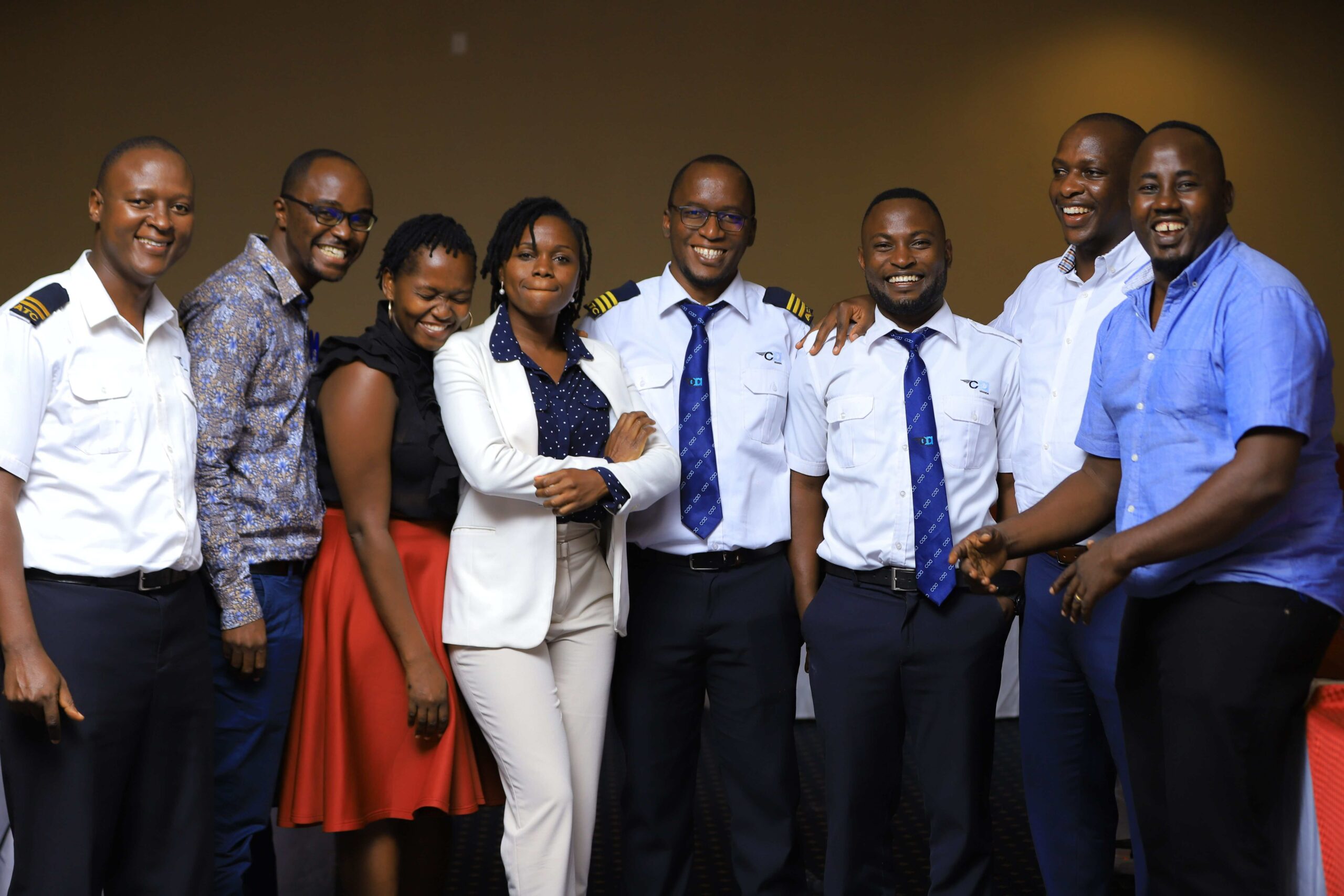The CAA Deputy M.D, Mr. Fred Bamwesigye (standing, fifth right), in a group photo with 27 Air Traffic Controllers from Algeria, Yemen, Rwanda, Kenya, Burundi, DRC, Sudan and Uganda who completed an Aviation English Language Proficiency training at Central Inn, Entebbe.
By Benjamen Emuk
Uganda last week successfully hosted an International Aviation Proficiency in English Language training for air traffic controllers.
Aviation English training dubbed ‘Train the Trainer’ which ended last Friday in Entebbe attracted over 26 air traffic controllers across Africa.
The trainees included 8 Ugandans, 5 Kenyans, 1 Rwandan, 5 Burundians, 2 Sudanese, 1 Congolese, 2 Yemenis and 2 Algerians.
English is the de facto international language of civil aviation used in aeronautical radiotelephony communications.
Ahumuza Arthur, President Uganda Air traffic Controllers Association applauded the sponsors of the training for enabling them attain the aviation English skills and revealed the significance of air controllers as far as safety in aviation is concerned.
He noted that air traffic controllers are as equally important as Pilots in the aviation practice.
“Pilots play the most vital role but they cannot operate without the help of the Air Controllers. The air controllers have to communicate effectively with the pilots to ensure smooth flights and for that matter, Aviation English Language is key for effective communication,” he said.
A five day Aviation English Training Course was organized by the International Federation of Air Traffic Controllers’ Associations (IFATCA) and hosted by Civil Aviation Authority.
The training put emphasis on improving communication between Pilots and ATC through proficiency in the Aviation English language to mainly promote regularity, efficiency and safety initiatives in the African Region and the entire international Air Navigation.
While officially closing the training, Bamwesigye Fred, the deputy Managing Director Civil Aviation Authority commended the air controllers for the roles they play in ensuring safety and efficiency to flights.
Upon successful completion, all the 26 participants were awarded with certificates which indicated that no one failed the course.


